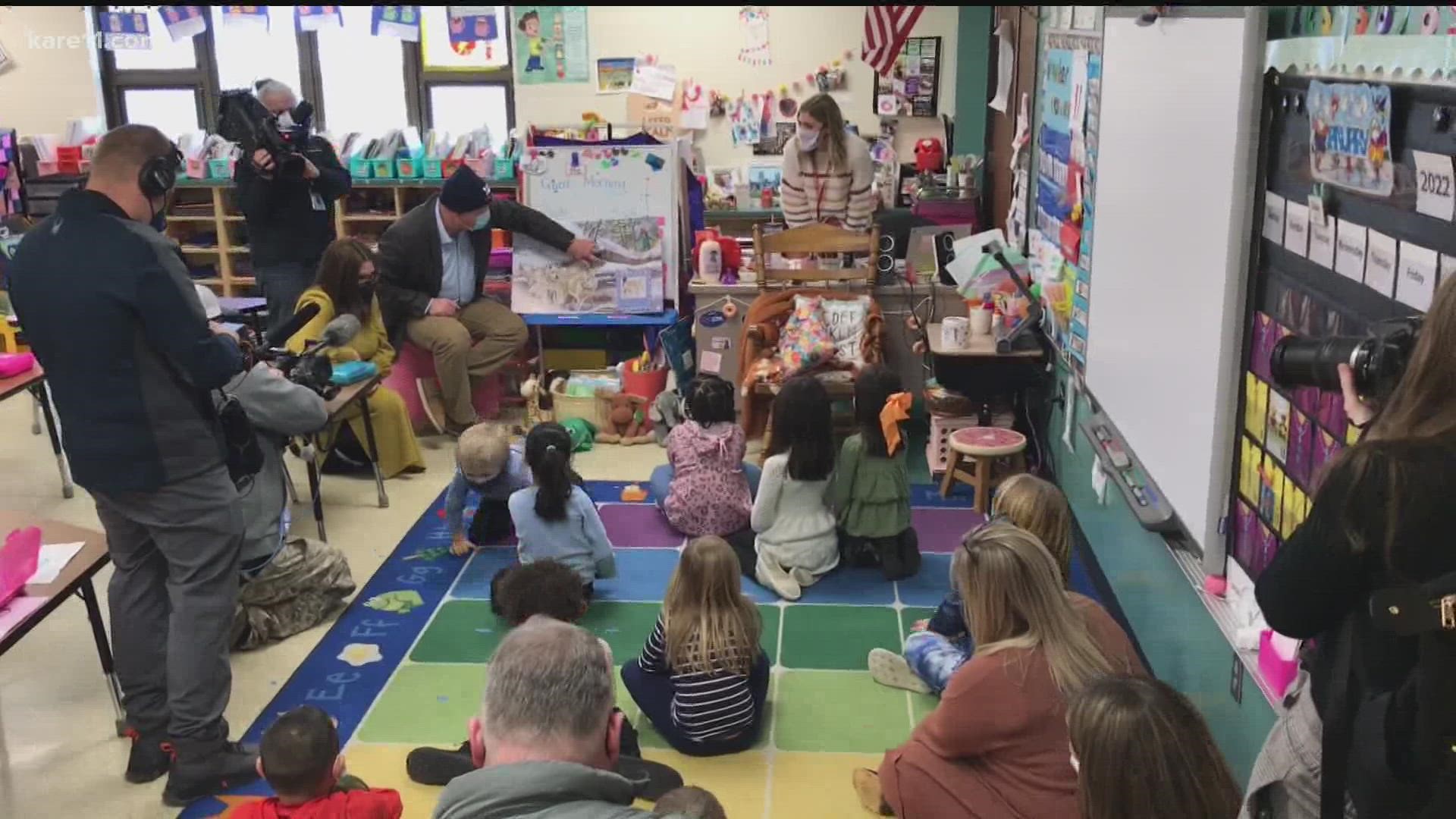INVER GROVE HEIGHTS, Minn. — Governor Tim Walz visited a school gym in Inver Grove Heights Tuesday to unveil his office's plan to beef up state infrastructure to support increased paid leave, child care options, Head Start, free breakfast and lunches in public schools, and a plan for literacy achievement.
The announcement of the budget package coincides with the upcoming legislative session, which starts next week.
In the recommendations, Gov. Walz's office said the expansion of child care and preschool would make space for 23,000 children. Another key item in the recommendations is a $183 million investment, followed by 4% increases each following year, into free meals for students in public school.
They also recommended $77 million go toward mental health among students.
"We know that children do not come in pieces... we are also investing in a student mental health and free meals for all students in participating public schools," Lieutenant Governor Flanagan said. "I've seen firsthand how kids and how families can endure losses big and small."
"Our systems have not led to the equitable outcome that we're looking for... that is what this budget does," Lt. Gov. Flanagan said.
Back on the legislative side, both Republicans and Democrats will discuss how to spend the state's money, including the surplus during the upcoming legislative session.
Meanwhile DFL party members discussed what they are prioritizing ahead of next week's legislative session.
In a virtual conference, hosted by Speaker Melissa Hortman, the DFL house members discussed the priorities between house Democrats and Walz's office ring similar.
For one, the recommendations for early care and learning.
Members of the DFL said it would cost $870 million every year to stabilize school budgets, including $27 million for recruiting teachers of color.
“Our budget surplus gives us the opportunity to invest in our future, close opportunity gaps, provide better support for our students and educators, and begin tackling our workforce shortage. It’s clear that the needs are great across Minnesota, and we will be working to ensure all of our children have every opportunity to succeed," said Hortman.
Democrats also proposed strengthening tuition reductions at Minnesota State colleges and universities.
Walz's office proposes waiving college application fees and funding the Emergency Assistance for Postsecondary Students program, which gives students emergency funding for food and housing.
DFL members are discussing freezing tuition at Minnesota State colleges and universities, proposing $65 million annually.
The news on education and childcare comes as Walz's office outlined other budgest items including economic opportunities and strengthening the job market.
The DFL and House Republicans have both said public safety is a high priority ahead of next week's session.
Republicans announced their own bill, led by Senate Majority Leader Paul Gazelka, which lays out a few reforms brining stricter punishments for offenders.
Gazelka also said he's introducing a bill that would prohibit judges from straying from the minimum five-year sentence for repeat offenders who commit a crime with a gun. He said the bills are in response to both the crime wave and what Republicans view as the misuse of prosecutorial discretion and judges that won't apply to minimum sentences prescribed in law.
Meantime, Democrats are proposing a $100 million criminal justice reform bill.
The public safety plan includes $40 million for Innovation in Community Safety Grants, $22 million for Local Community Policing Grants, $22 million for Crime Investigation Grants, $10 million towards abuse and addiction prevention for opiates and $2.5 million to help local police buy body cameras, according to the DFL's announcement.
Regarding the child care recommendations, state Republicans called Gov. Walz's proposal "the wrong direction."
"A bureaucratic, government-run, one-size-fits-all program that taxes main street businesses and their employees is not the answer to met the individual needs of parents and caregivers," said Sen. Julia Coleman.
Watch more Minnesota politics:
Watch the latest political coverage from the Land of 10,000 Lakes in our YouTube playlist:

